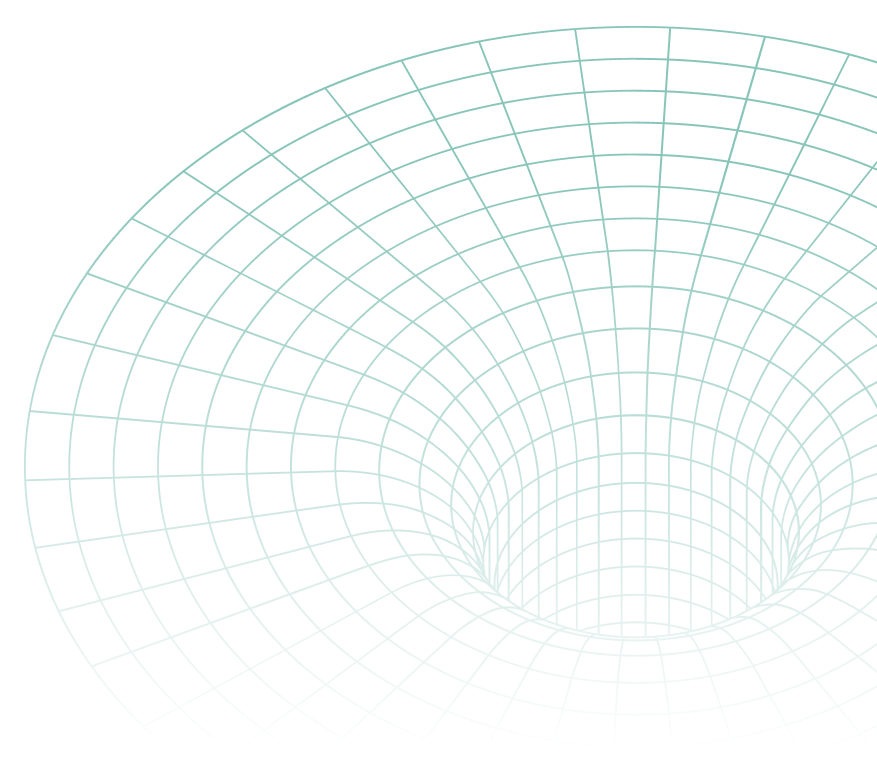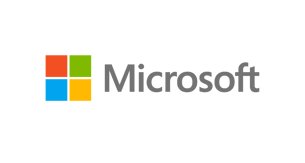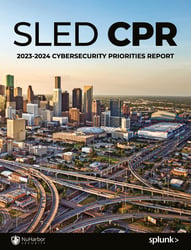
CMMC compliance services
The Cybersecurity Maturity Model Certification (CMMC) is rapidly taking shape, with new announcements coming out regularly. If you need CMMC compliance services or are looking to get a head start on preparations, we have a deep understanding of the CMMC framework and are up to date on the latest requirements.
Cybersecurity services trusted by 500+ organizations and growing!
NuHarbor’s advanced 24/7 monitoring and engineering expertise in managing security alerts, dashboards, and data integration, with world class customer service has created a true partnership with us as their team feels like an extension of ours. Working with NuHarbor, knowing our systems are being monitored and managed by their team of expert analysts, gives us confidence in our ability to respond to potential incidents. NuHarbor’s engineering expertise provides us with customized dashboards and regular updates, which keep us informed and empowered to make smarter security decisions.
NuHarbor helped us identify the correct assets to monitor, then tuned our systems for maximum results. Now we only receive notifications for true positive alerts so my team can spend more time focusing on their objectives.
We’ve utilized NuHarbor for a few years now to conduct quarterly vulnerability assessments. Our usual policy is to change vendors every few years, but we’ve had such exceptional service from NuHarbor that we see no need to shop around. The reports we receive are comprehensive and prioritize remediation advice.
NuHarbor conducted a web application penetration test on a few of our edge applications. They discovered many configuration weaknesses including insecure direct object reference (IDOR). They notified us immediately and offered advice on how to fix it. Their skilled engineers provided step-by-step assistance and retested to ensure that this critical vulnerability was fixed.
Wifi. Yeah, that’s an unfamiliar animal to deal with. We hired NuHarbor to test the wireless networks we provide for our employees and customers to access store services. NuHarbor came onsite and set up their “toolkit” with antennas sticking out all around. They were able to set up a rogue access point, mimicking our access points, and users unknowingly logged on. NuHarbor initiated an evil twin attack to capture and inject packages into the network stream between user computers and other systems and then delivered findings so we could educate and curve our user behavior.
NuHarbor performed an external penetration test on our networks and alerted us to critical vulnerabilities. They let us know what the affected response might be from the host before they tried to exploit it. We were updated twice a day which was super helpful to me and my staff. They also provided great remedial guidance that helped us quickly correct vulnerabilities.
Our company outsources our web development. We asked NuHarbor to review the source code and check for insecure API calls. We were astonished at the findings they uncovered. It was an uneasy feeling knowing that the web developer we hired left so many security flaws in our code. I can’t say enough how comforting it was to have the NuHarbor team give us, and our partner, clear recommendations to fix our source code.
NuHarbor waged a phishing campaign against our employees by mirroring a realistic payroll website that we use in our company. The NuHarbor engineers captured several IT administrators’ credentials. With domain administrator access, they were able to compromise our whole domain within 20 minutes of starting the phishing campaign. We had the opportunity to show our leadership how pertinent it is to implement better user account practices, MFA, and improved user security awareness training and build the funds into our annual IT security budget.
NuHarbor performed an internal penetration test of our organization utilizing one of our legacy network protocols. They were able to gain administrative access and push malicious code to our network. Had this been a real attack, we could have lost everything.
NuHarbor assessments provide visibility into our third-party risk exposure. We don’t have the internal resources to conduct yearly assessments of our 40+ vendors. These valuable insights inform the decisions we make when choosing and managing partnerships.
NuHarbor has been instrumental to our SOC operations. Without their flexibility, expertise, and quick reaction, our small SOC team could not operate. NuHarbor continually engages with us at the operational and executive level. They’re always looking for new, creative solutions. Not only are they willing to think outside the box, they actually deliver.



CMMC compliance assessment for your organization.
CMMC is an evolving cybersecurity requirement. Whether you’re looking for cybersecurity support, controls design, or readiness assessments, NuHarbor Security can help you.
- CMMC readiness assessments measure where you are today, and areas of improvement needed to pass the certification.
- CMMC development and documentation of System Security Plans (SSP) is a complex process with volumes of information. SSPs are living documents that require ongoing attention and maintenance. They describe an organization’s security controls and how they are implemented.
- CMMC penetration testing is a requirement for CMMC compliance. Penetration testing is more comprehensive than a vulnerability scan. It encompasses network and application flaws, as well as business logic and misconfigurations to assess the environment for potential intrusion vectors.
- End-to-end CMMC support fills in the gaps wherever you need additional assistance. Let NuHarbor Security be your trusted partner in certification preparation as CMMC requirements evolve.
- NuHarbor Security monitoring services meet all CMMC audit and logging requirements.
We make it easy to improve and manage your security
We believe great cybersecurity exists at the intersection of exceptional service delivery and purposeful deployment of security solutions.
-
Easy to understand
Our security experts are trained to support and communicate in ways you can understand. Cybersecurity solutions are created to answer your questions on your terms.
-
Easy to choose
We have an established reputation as security and technology leaders. With a clear definition of cybersecurity outcomes for your business, you can make the best decisions to secure your organization.
-
Easy to trust
We deliver clear and consistent communication. Paired with our trusted operations and reporting, your stakeholders can have peace of mind in their cybersecurity decisions.

Our solutions make it easy to progress in your cybersecurity journey.
No matter where you are in your cybersecurity journey, we can help. Whether you're just beginning, looking to improve, or not sure where to go next, our trusted experts are committed to your success and can help you every step of the way.
-
Identify Gaps in My Cybersecurity Plan
Create a new cybersecurity plan or roadmap to make spending, hiring, and security outcomes more predictable.
-
Detect and Respond to Threats in My Environment
Our managed services are designed to rapidly identify and limit the risk of threats without the need for additional staffing.
-
Fulfill Compliance Assessments and Requirements
Demonstrate the maturity of your security program to build trust with stakeholders and gain a competitive advantage.
-
Verify Security with Expert-Led Testing
Our engineers use the same tools and techniques as the world’s most dangerous bad actors, delivering a clear view of vulnerability that can’t be uncovered any other way.
-
Manage Complex Cybersecurity Technologies
Get the desired return on investment from your cybersecurity technology. From deployment to around-the-clock monitoring, we watch for new threats, so you know your cybersecurity technology is providing maximum protection without all the noise and wasted effort.
-
Realize the Full Value of Microsoft Security
With managed services across the Microsoft Security ecosystem, we help you achieve stronger detection, compliance, and protection.
-
Security Monitoring with Splunk
The power of Splunk is in the ability to build an in-house security operations center (SOC) and see your data when you want it. Our Splunk MSSP is built for you and how you use the platform.

Strategic partners
We make it easy to tackle whatever comes next. We deliver the most comprehensive set of integrated security services in the market by harnessing the best technology available.

Explore similar services.

Resources
We make understanding and staying up to date with cybersecurity trends easier. By sharing our robust expertise, knowledge, and tools, we help you protect what matters most.

Explore comprehensive cybersecurity protection today.
-
Consult with an expert
Talk to one of our cybersecurity experts so we can better understand your needs and how we can help.
-
Agree on a plan
Based on your objectives we’ll create a tailored plan to meet your cybersecurity needs.
-
Start maximizing your protection
Experience peace of mind knowing what matters most is secure.




